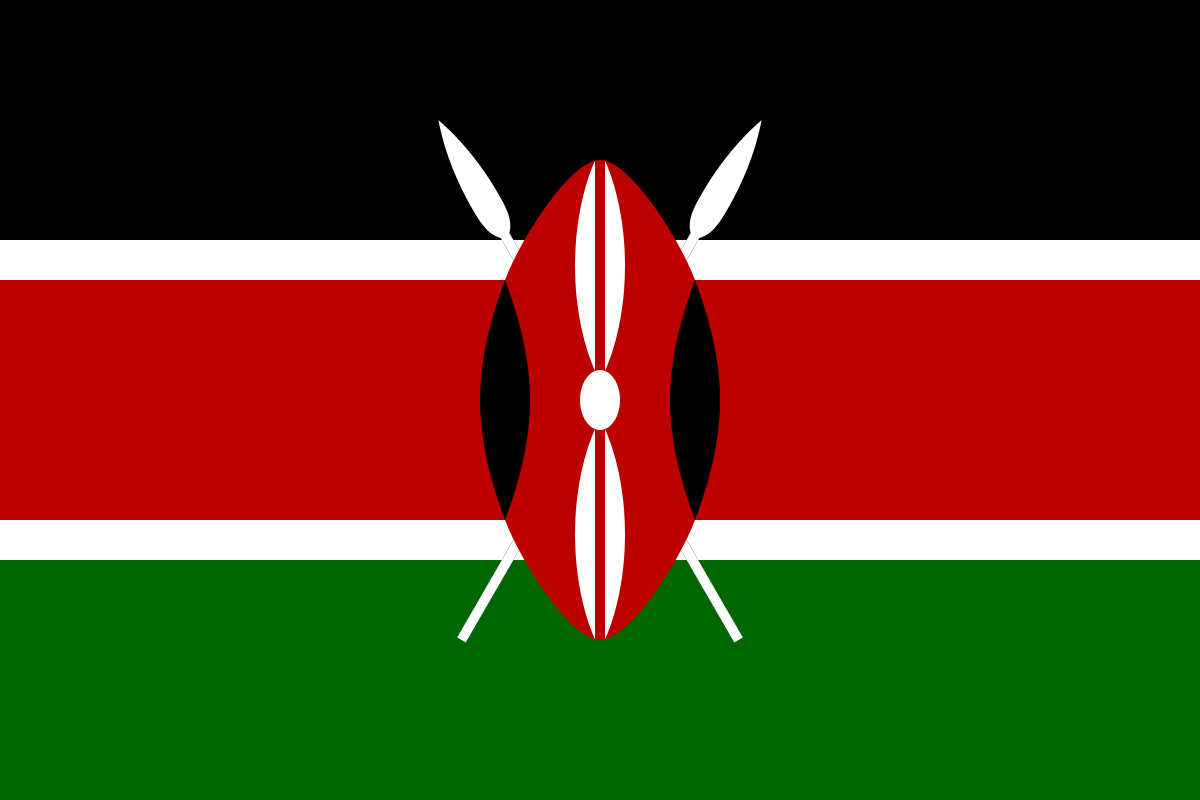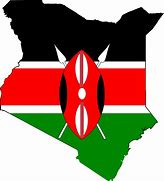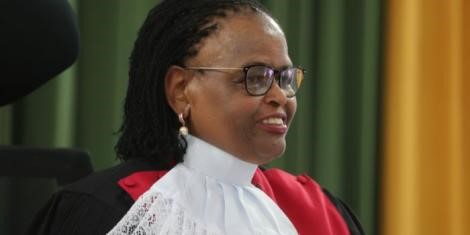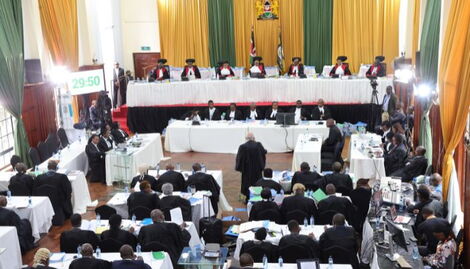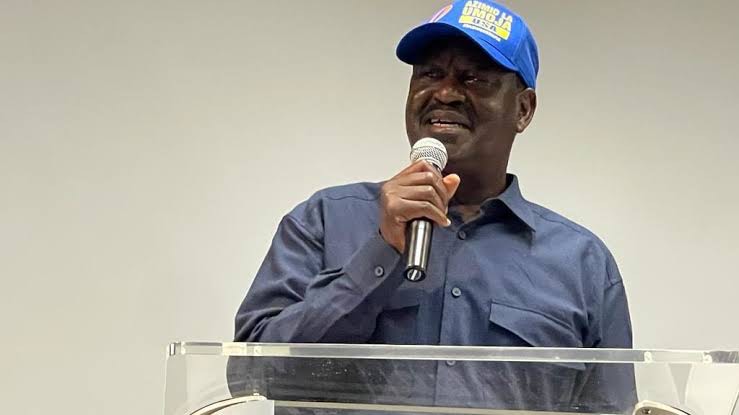- Details
- Julius Mbaluto
- East Africa
- 494
The Senate has invited eligible individuals to apply for the position of Speaker after President Uhuru Kenyatta's public notice convening the first sitting of the House on Thursday.
In a notice in the Kenya Gazette published today, President Kenyatta declared that the first sitting of the third Senate of the 13th Parliament will be on Thursday, starting at 9am.
The sitting will be undertaken concurrently, in the 68-member Senate and the 350-member National Assembly.
Addressing a press conference in his office, Nairobi, today, Clerk of the Senate Jeremiah Nyegenye asked those interested in serving as Speaker to pick nomination papers at his office and return them tomorrow by 2:30pm.
“Any person who is eligible for election as a Speaker or as Deputy Speaker of the Senate and who is interested in contesting for these positions, is advised to collect nomination papers,” said Nyegenye.
The nominations papers were supposed to be picked starting yesterday between 1 to 8pm and the Clerk said his office will open beyond office hours to facilitate the process so that the greatest opportunity is availed for interested persons to collect the nomination papers.
"The office will open early today at 7am so that all those interested get an opportunity..."
“Completed nomination papers together with a curriculum vitae of each candidate and relevant supporting documents which we have advised should be returned to the Office of the Clerk the Senate not later than 2:30 pm On Wednesday,” he said.
The first business of the House when it convenes on Thursday will be for the Clerk to swear in all the elected senators. This will be followed by the election of the Speaker and the deputy speaker
However, the Deputy Speaker will be elected from among members of the respective Houses.
The candidate who picks the nomination papers will have to return them accompanied by the names and signatures of two Senators-elect who support their bid.
The senators-elect will have to make a declaration that the candidate is qualified to be elected as an MP in line with the provisions of the Constitution and is willing to serve as Speaker of the Senate.
The Senate will have a pre-swearing-in session within the precincts of Parliament buildings, Nyegenye said.
The Standard learnt that Isaac Aluochier and Oundo Jared Oluoch had already collected nomination papers for the Speaker position.
Before one is cleared to contest, he must submit the nomination papers with a list containing one third of all members of the House
However, the decision of who becomes the Speaker will be determined the politics of political parties.
So far, Kenya Kwanza enjoys an advantage and whoever it picks is likely to become the fourth Speaker of the Senate, after Timothy Chokwe (1963), Ekwee Ethuro (2013/17) and Kenneth Lusaka (2017/2022).
Kenya Kwanza is likely to front former Kilifi Governor Amason Kingi and although Raila Odinga had fronted Kenneth Marende for the seat, it is not clear how it will pan as the former Speaker has been linked with a similar position in the National Assembly.
Yesterday, Nyegenye asked the senators-elect to carry their original national identity card or passport, the IEBC certificate of election, four colored passport size photographs, their bio-data and curriculum vitae, and a copy of a carry pin certificate.
Some of the candidates who have shown interest so far in the position for Speaker and the Deputy Speaker positions are; Dr. Noah Winja, Jared Olouch, Isaac Alouch Polo, Farah Maalim, Moses Masika Wetangula, Kalonzo Musyoka and Robert Gichimu Githinji. - Ibrahim Oruko, The Standard



